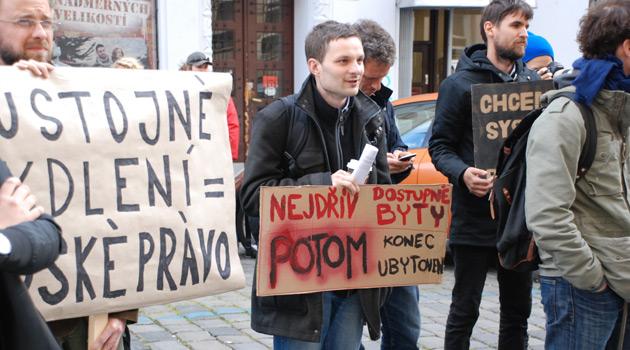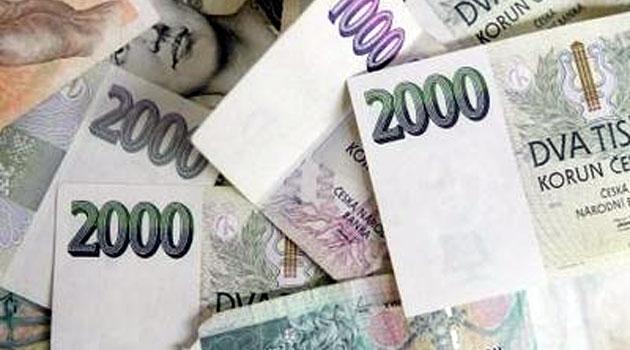Czech expenditure on aid to those in material distress lowest for the last six years

Expenditures on the set of welfare benefits known in the Czech Republic as “aid to those in material distress” have significantly fallen for the fourth year in a row and are at their lowest levels in six years. The number of persons receiving assistance from the state is also declining.
Last year persons in financial need received roughly CZK 7.36 billion [EUR 287 million] from the Labor Offices. That amount is more than one-third less than in 2014, when it was CZK 11.29 billion [EUR 440 million].
This year the sum of money expended on such benefits is declining even further – during the first five months of 2018, compared to the same period last year, it has fallen by 28 %. The data are provided in reports on the disbursal of welfare benefits that are regularly issued by the Labor Ministry.
Three benefits are in the “material distress” category: the subsistence contribution, the housing benefit, and the extraordinary immediate aid benefit. The coalition Government of ANO and the Czech Social Democratic Party (ČSSD), supported by the Communists, states in its program declaration that it will assess the changes made in recent years to the benefit systems.
The declaration says the Government wants to focus on the benefits for the poor and plans to propose adjustments that will increase “certain obligations on the part of the client with the aim of gradually reducing and eliminating dependency on benefits.” Czech Prime Minister Andrej Babiš (ANO) has repeatedly mentioned revising benefits so as to prevent their being abused.
The new Czech Labor Minister Jana Maláčová (ČSSD), whom the Czech President wants to appoint to office by 30 July, will be tasked with designing the new policy. Benefits expenditures and the number of recipients were the lowest last year since 2012, when the ministry first began publishing its reports on benefits disbursals.
In December 2012, those in need received a total of 188 300 subsistence contributions/housing benefits/immediate aid benefits, while last year at the end of the year there were just 144 300 benefits of those types disbursed. As of the end of May 2017 the Labor Office had issued just 171 000 such benefits, while this year by that same time 127 400 benefits had been disbursed.
According to the report, during the first five months of 2018, or roughly two-fifths of the way through the year, approximately 29 % of the sum allocated from the state budget for such benefits has been drawn. In monetary terms, that is a total of CZK 2.45 billion [EUR 96 million] disbursed from a planned CZK 8.6 billion [EUR 335 million].
Compared to last year, the expenditures are 28 % lower. The good condition of the Czech economy and the associated high employment and earnings growth are behind these favorable developments.
Aid to those in material distress is calculated on the basis of household income and the amount of a subsistence-level income. For a single adult, the subsistence-level income in the Czech Republic is officially CZK 3 410 [EUR 133] per month, while a lower amount is calculated per additional dependent.
If the salaries or wages of some low-income workers rise even slightly, they then exceed this limit and the applicants are unable to access benefits. During the previous administration measures were enforced that tightened the rules for awarding benefits.
For example, persons living in so-called benefit-free zones will no longer qualify for housing benefits if they newly apply for them, and the benefit disbursed to those living in residential hotels is also lower. Unions have long warned of the phenomenon of the so-called working poor and have been pushing for wage growth.
Some people remain on the border of poverty even though they work. Last year, for a single adult, the poverty level was considered CZK 11 195 [EUR 437] per month, while for a single parent of a child 13 years old or younger, the poverty level was considered CZK 14 553 [EUR 568].
The minimum wage was CZK 11 000 [EUR 429] gross, which was raised to CZK 12 200 [EUR 476] this year. The unions are also criticizing the fact that the Government’s program does not count on increasing the minimum subsistence level.
That official level was last adjusted in the year 2012. The Labor Office previously reported that its staffers undertook 110 893 audits of the disbursal of aid to those in material distress last year.
They rejected 559 new applications and revoked 1 497 benefits already disbursed, saving more than CZK 37 million [EUR 1.45 million]. Those savings correspond to 0.5 % of the overall expenditure on aid to those in material distress.
